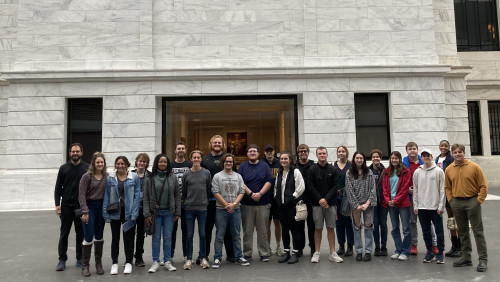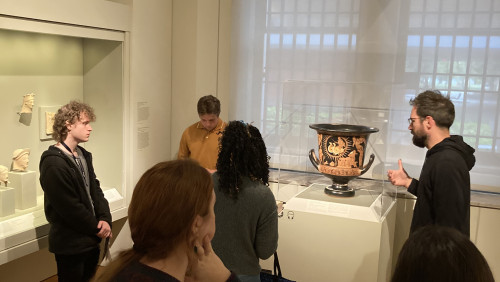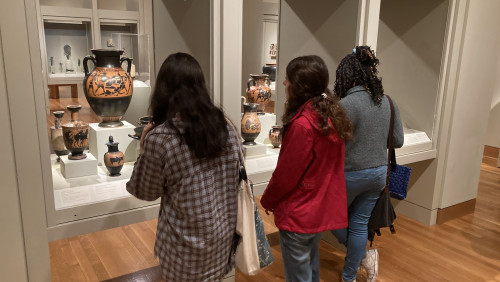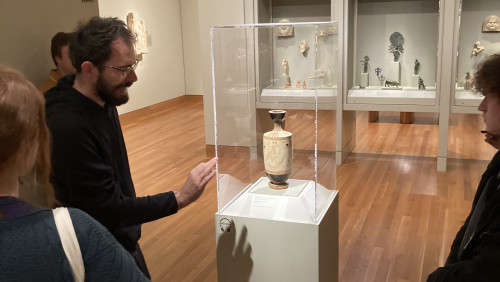Malone Students Benefit from Grant by Lykeion Fund Through the Stark County Community Foundation
Thanks to a generous grant provided by the Lykeion Fund through the Stark Community Foundation, David Beer, chair of the department of history, philosophy, and social sciences and associate professor of political science, was able to take a group of Malone students to the Cleveland Museum of Art for an up close and personal learning experience.
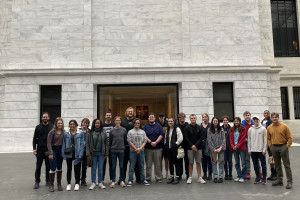
“The field trip was for our Classical Greece and Rome course, in which we move from the Bronze Age to the fall of the Roman Empire. In the class we talk about Greece and its contributions to the roots of contemporary western culture, such as the development of individualism, democracy, and free speech,” said Beer. “The trip, and scope of the class, was bolstered by the grant which we received, allowing us to examine how ancient Greece has contemporary relevance.”
In hopes of providing the best experience possible, Beer and his class were accompanied by adjunct faculty member John Kennerk and his art history class.
“The trip worked really well for both of us. John served as a guide, which was only possible because the Stark Community Foundation so generously provided the funds,” said Beer. “Instead of just taking my class, I was able to bring an actual art historian and he gave us more background and knowledge. The funds not only made it possible for us to go, but also supported a specialist presentation.”
Generous gifts such as these bolster Malone’s mission in innumerable ways. One of the greatest benefits is allowing for such seamless cross-campus collaboration, which ultimately leads to more well-rounded students. 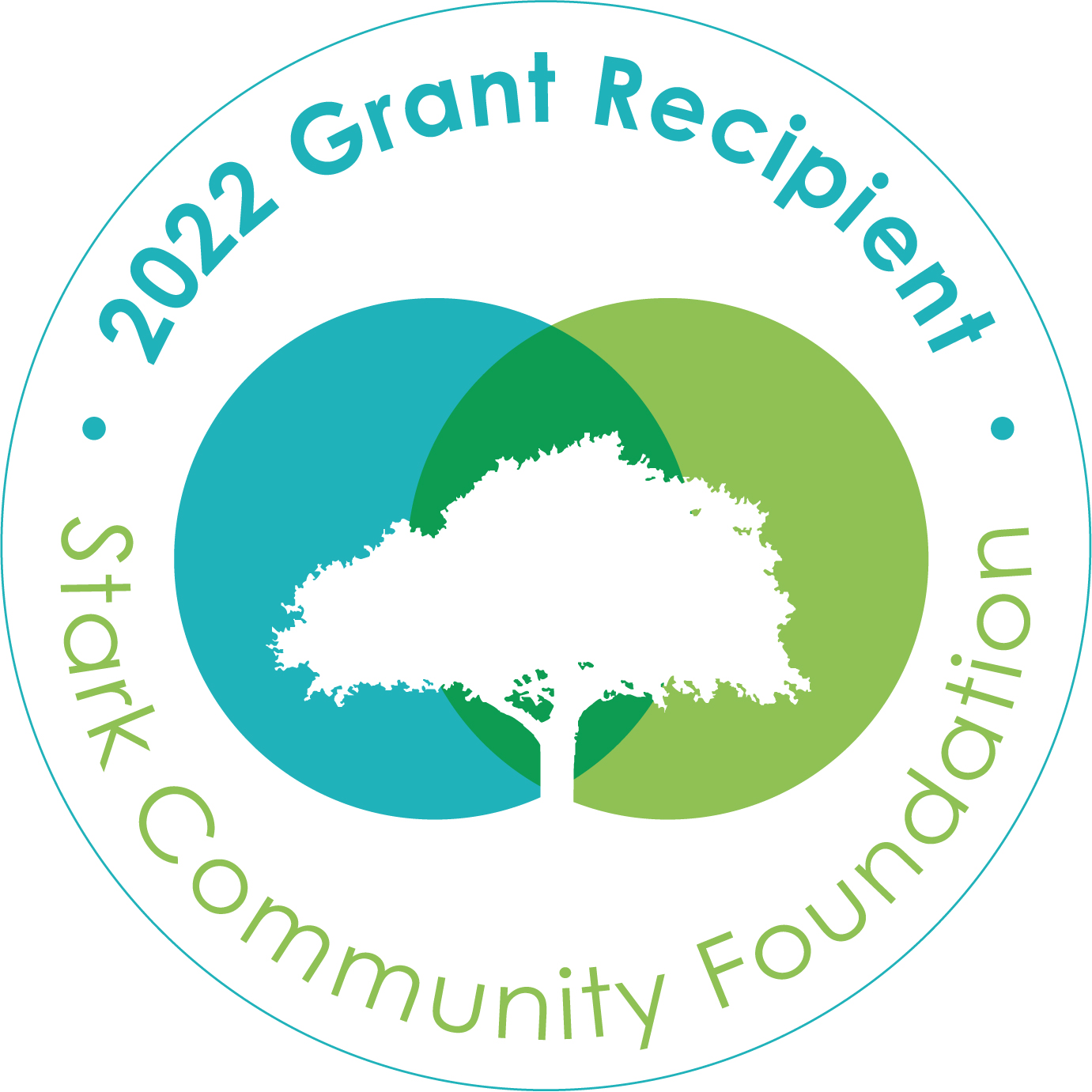
“At a university like Malone, it's a lot easier to work with other departments. We can’t do it as much as we would like, but this grant made this particular experience possible,” said Beer. “It’s truly a liberal arts education, where we don't look at classes as little check boxes, but rather disciplines that integrate together. This is a history class being taught by a political philosopher, and thus producing a specific type of spin on the material. But now we have an art historian talking about symbolic representations that antique cultures produce and how that connects to their ideas of reality. It’s something very special.”
This approach not only produces students who are well-rounded in academics, but also challenges their view of the world around them.
“For our students, it is opportunities like these that serve to broaden their perspectives and get them into a bigger world. We take students to D.C. for the same reason; we demystify these places and show them that a Malone education prepares them to engage the world in a multitude of ways. They now enter a conversation that has been going on for thousands of years and they are an equal participant in that conversation,” said Beer.
Furthermore, this grant’s focus is of utmost importance for Malone students.
“We say that ideas have consequences. Take as an example thinking about Greek individualism and free speech; those say an awful lot about the type of culture that you’re going to have, the type of government that’s going to flow from that, and the conditions that make parts of culture possible,” said Beer. “At a place like Malone, political philosophy is at the core of what we do as opposed to being an add-on. It gives students a way to engage at the theoretical and conceptual level, ensuring to give them an excellent foundation for tangible engagement going forward. That type of learning is vital, and this grant paved the way for that to happen.”
For this trip in particular, students were given time to explore the museum before reconvening after lunch.
“We came together and talked through what they observed, first starting with Egyptian artifacts as an example of an older culture and then we moved on to the Greeks to see how culture and art had shifted and changed,” said Beer. “We then made the trek back to Malone, but the funds also provided a way to stop for dinner and have a nice communal time together.”
The experience was not lost on the students who attended, giving them valuable experiential learning that is core to the Malone mission.
“The students all thought it was very valuable to see connections between Greek art, thought, and what we’ve discussed in class. This was clearly the kind of extra experience that can happen at a place like Malone,” said Beer. “It wasn’t an academic requirement to organize this trip, but it was a great opportunity to engage our students academically and socially.”
Beer hopes to have more opportunities like this in the future, and is deeply appreciative to the Lykeion Fund and the Stark Community Foundation.
“We are grateful and thankful for the support we were given. This particular class is only taught every couple of years, but we’ve already talked a bit about tying it into other areas, like medieval history for example, showing the Greek inheritance of the middle ages and so forth,” said Beer. “We certainly want to expand and maybe try to do some more public facing activities so that our entire community can benefit from this generous gift. We are just so, so thankful, and we are so excited for future growth.”
